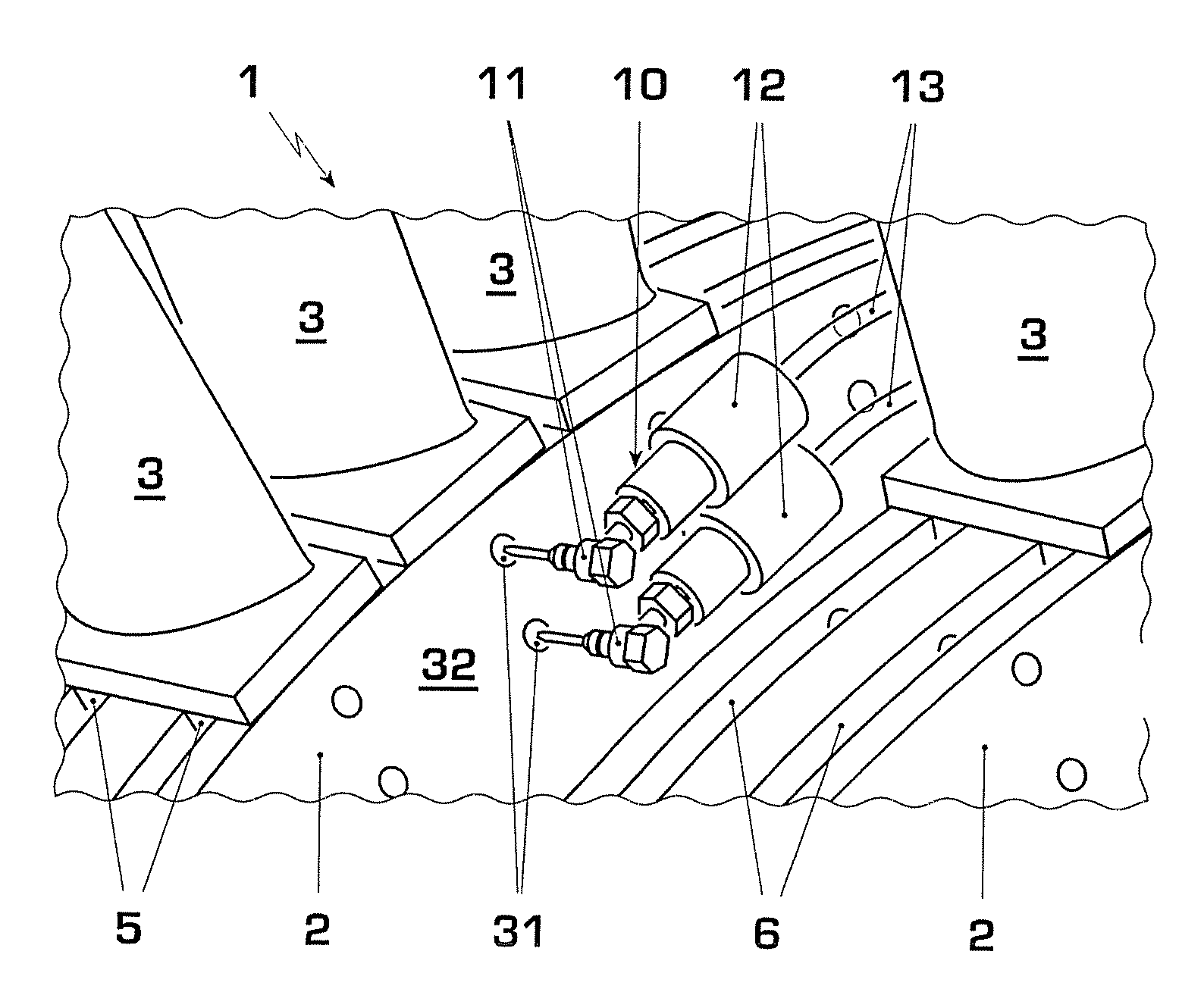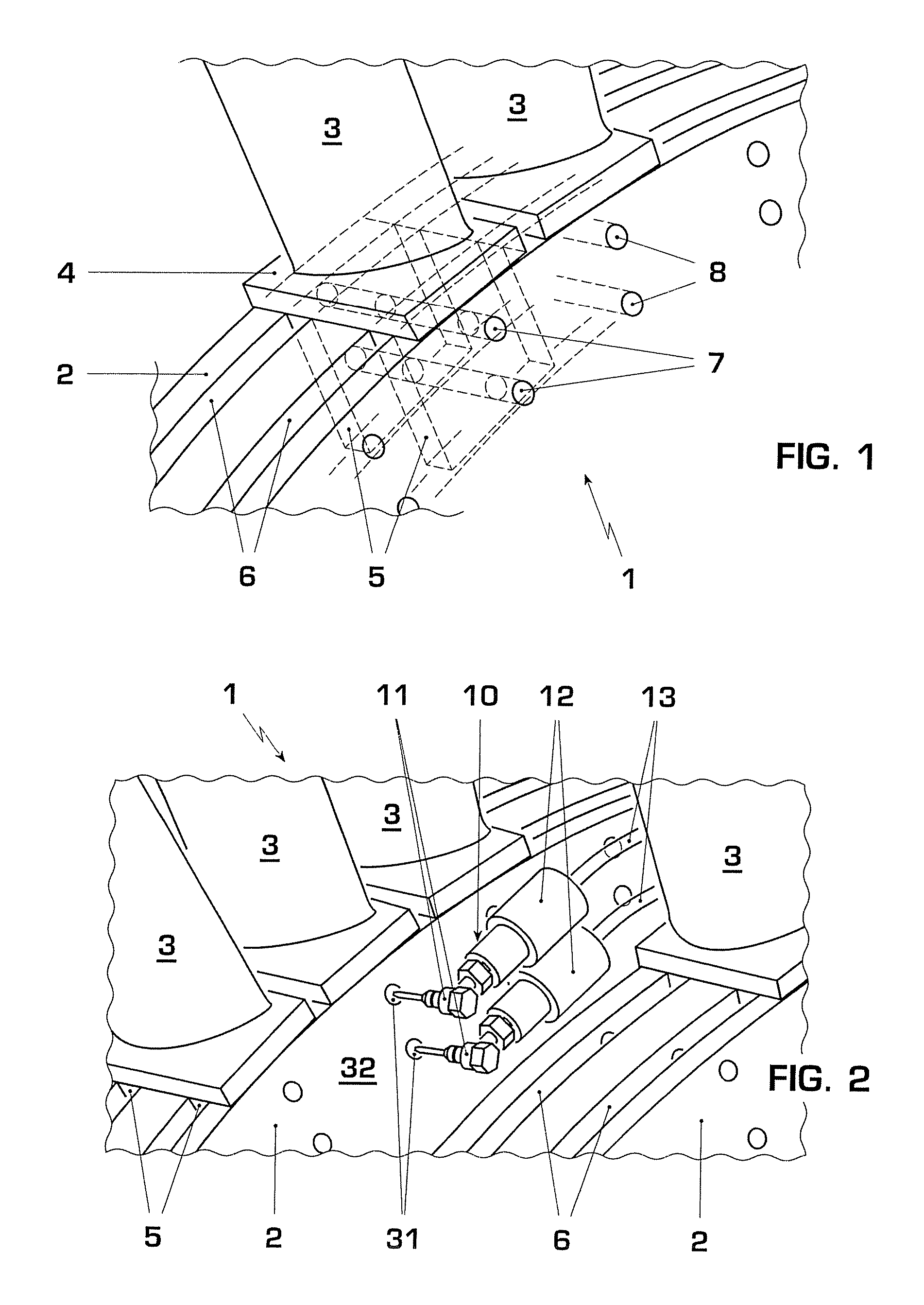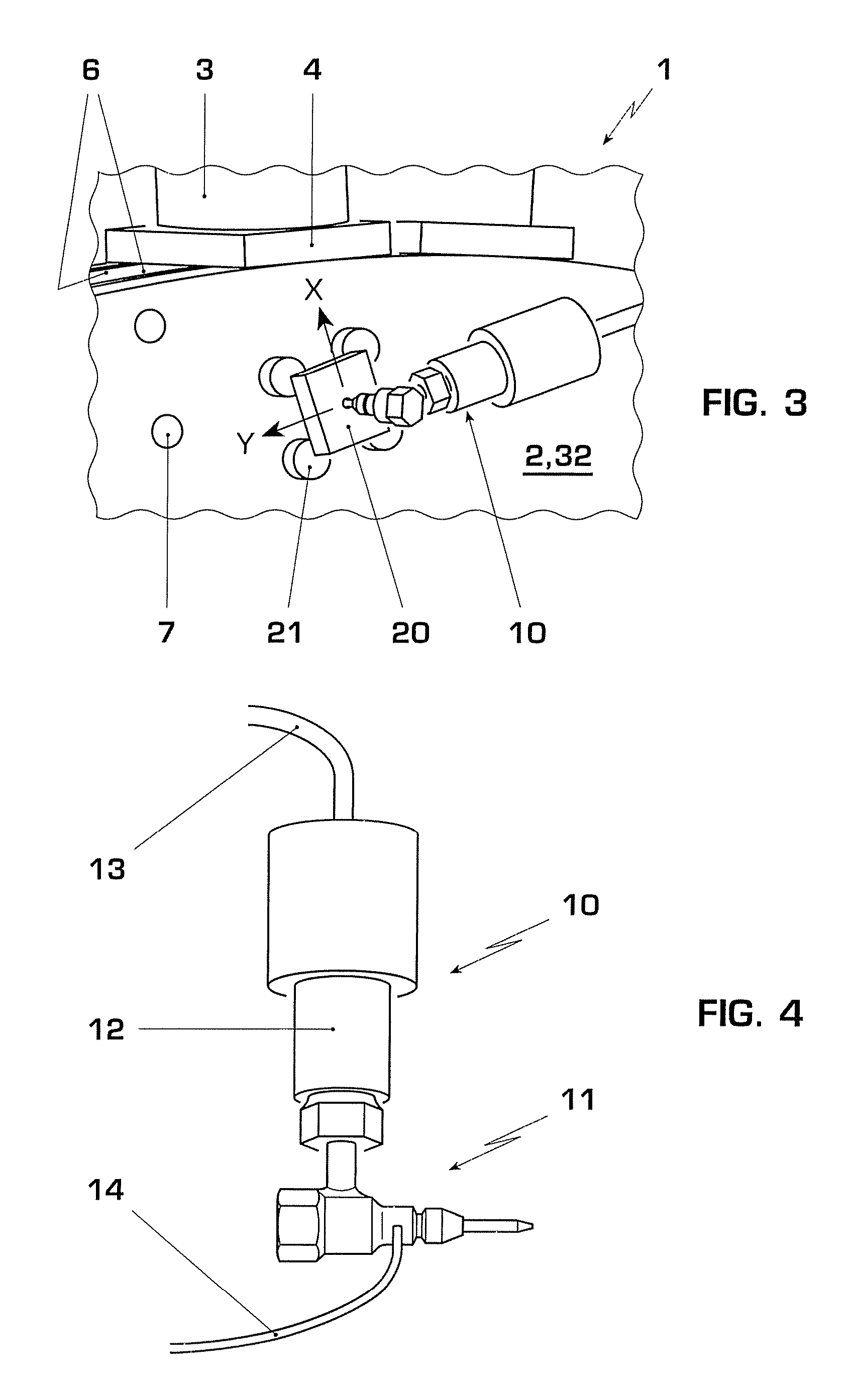Method and device for pin removal in a confined space
a technology of confined space and controlled mechanical removal, which is applied in the direction of mechanical equipment, machines/engines, manufacturing tools, etc., can solve the problems of difficult, time-consuming, and costly, and the space for accessing particular machine parts such as pins with such tools is confined, and maintenance often requires difficult manual labor and individual handling of maintenance operations. , to achieve the effect of less cost and less tim
- Summary
- Abstract
- Description
- Claims
- Application Information
AI Technical Summary
Benefits of technology
Problems solved by technology
Method used
Image
Examples
Embodiment Construction
[0030]Blades are secured in blade rows to a steam turbine rotor by various means. FIG. 1 shows a portion of a steam turbine rotor 1, on which blade rows are secured by means of a turbine rotor wheel 2. Each blade 3 is equipped with a blade platform 4 and a two-part blade root 5. Each of the radially extending parts of the root 5 is placed in a circumferential groove 6 in the turbine wheel 2. In order to secure each blade root to the turbine wheel 2, one or more pins 7 are placed in bores 8 extending through the turbine wheel 2 and the blade root 5. The pins are placed in the bores by a high-tension press-fit.
[0031]When the turbine is due for service maintenance and blading replacement, the blades must be removed. FIG. 2 shows two turbine wheels 2, with blade rows 3 secured to them by their roots 5 in grooves 6. The space between the blade rows is confined so that a conventional tool cannot be directed straight at a pin or does not fit at all. According to the invention, the press-fi...
PUM
| Property | Measurement | Unit |
|---|---|---|
| Angle | aaaaa | aaaaa |
| Diameter | aaaaa | aaaaa |
| Shape | aaaaa | aaaaa |
Abstract
Description
Claims
Application Information
 Login to View More
Login to View More - R&D
- Intellectual Property
- Life Sciences
- Materials
- Tech Scout
- Unparalleled Data Quality
- Higher Quality Content
- 60% Fewer Hallucinations
Browse by: Latest US Patents, China's latest patents, Technical Efficacy Thesaurus, Application Domain, Technology Topic, Popular Technical Reports.
© 2025 PatSnap. All rights reserved.Legal|Privacy policy|Modern Slavery Act Transparency Statement|Sitemap|About US| Contact US: help@patsnap.com



